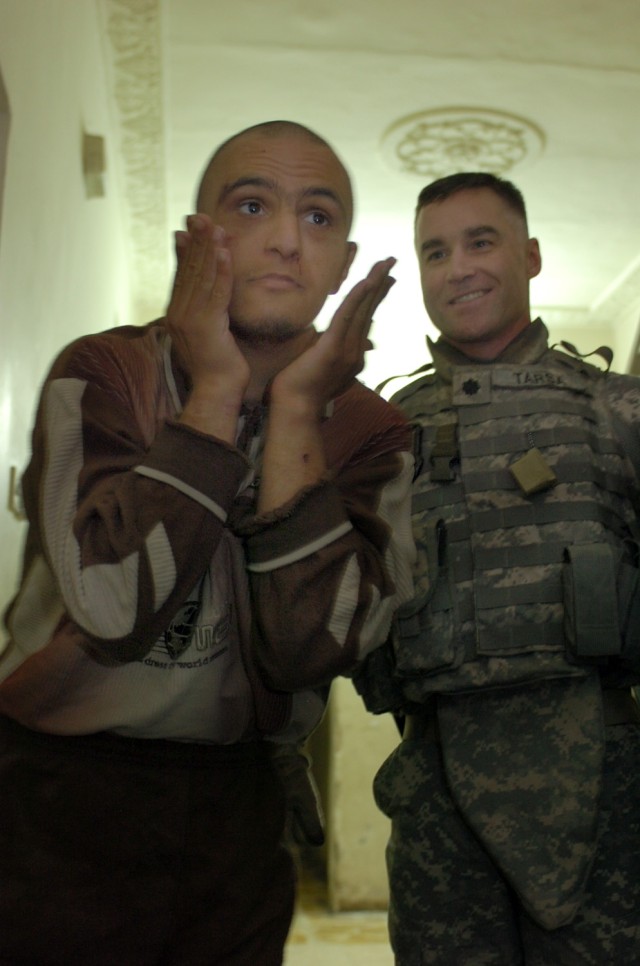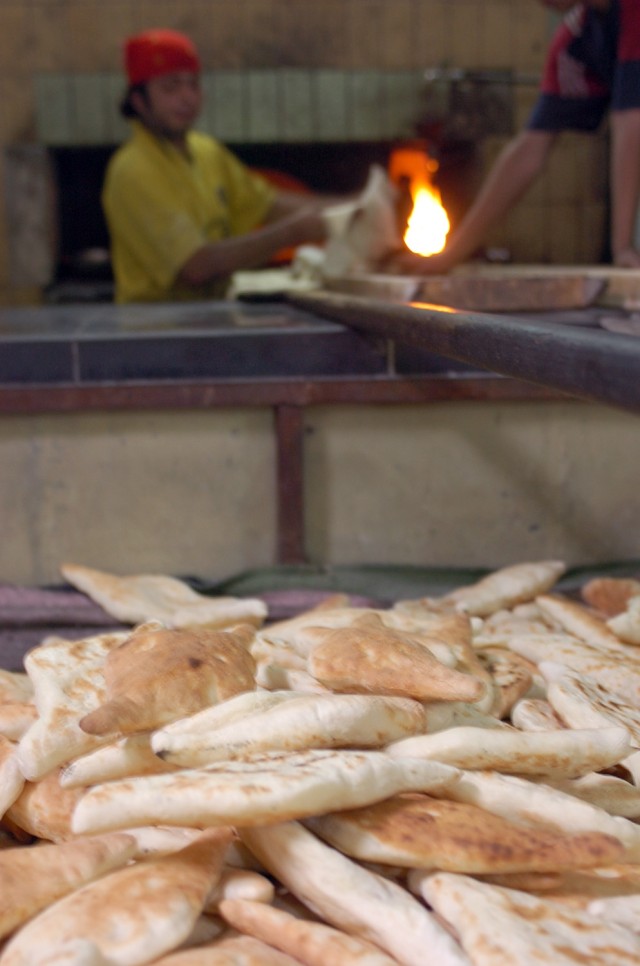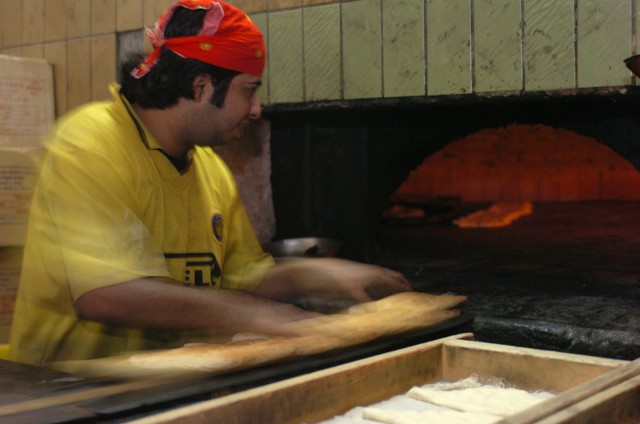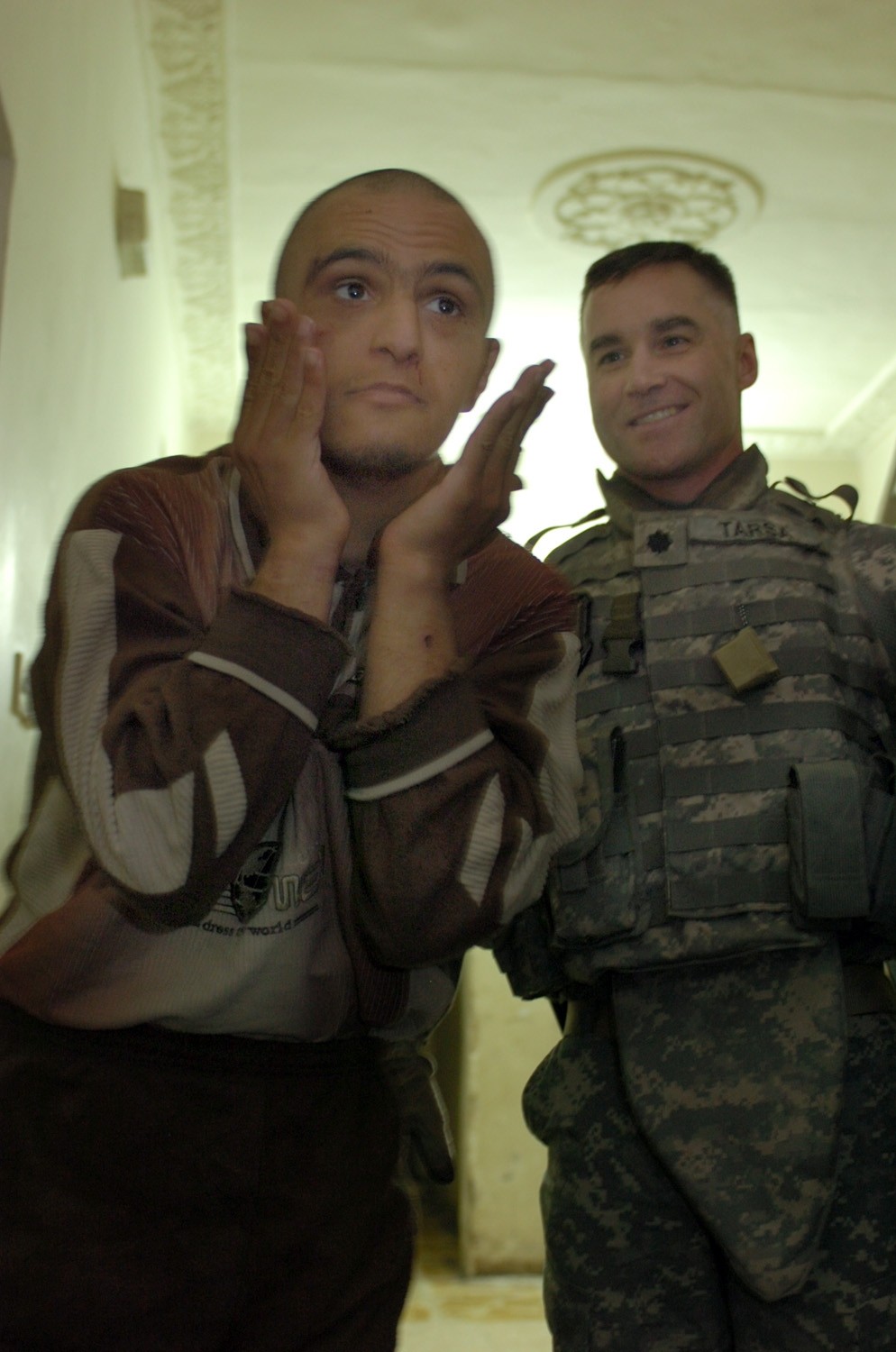BAGHDAD, Iraq - Troops from Battery A, 3rd Battalion, 82nd Field Artillery Regiment and a Civil Affairs team from the 422nd Civil Affairs Battalion handed out $10,000 in micro-grant funds to a small business and a home for the caring of mentally handicapped children.
Abdul Kareem Fasial, the owner of a small bakery in one of the Qadisiyah neighborhoods, received $5,000 to go toward several upgrades to what he called the "best" bakery in the neighborhood.
"Cooperation made this all possible," Fasial said. "The Soldiers made it very easy to get the grant, and I have no doubt that this will help me and the entire community."
Fasial and his small corner confectionary shop opened almost 30 years ago. He said that recently, his neighborhood has seen many rewards since the local leaders began working closely with the troops from 3-82 and others from the 2nd Brigade Combat Team, 1st Cavalry Division.
"A lasting impact could be made if we endeared our Iraqi leaders to the cause," said Lt. Col Michael Tarsa, commander of 3-82 FA.
The Dina Institute for the caring of the mentally retarded also received $5,000 as well as several hundred pounds of rice, sugar, beans and food.
Tarsa said that his troops have been to the institute several times to check up on the needs of Inam Jawad, the institute's head caretaker, and her kids. After the first time they heard about the facility, they couldn't help but feel obligated to help.
"We were drawn to the Dina Institute by the opportunity to help," Tarsa said. "They are a forgotten segment of society and we knew we had the resources to help."
This wasn't the first time troops have helped the institute. However, it was the first time their help came in the form of money.
Jawad said she will use the money to get caught up on employee salaries, medical supplies, and a few things to make the cold winter months go by a little easier.
Jawad expressed her thanks to the troops and the council members who came to her aid a few months ago when all other channels seemed to fail.
Word of the struggles at the institute traveled through channels and eventually reached the attention of Walid Taha and Nadia Al Ezzi., two prominent business people with an aching heart to help children in need.
Taha is the chief executive officer of a huge conglomerate in Iraq known as the Taha-Kubba group. This commercial juggernaut manages dozens of companies that are all based in Baghdad, but have ties to several other countries.
One of the smaller subsidiaries of the group is the Dema organization which is run by Ezzi. This group focuses its efforts not in trading or multi-million dollar construction projects, but instead on providing medical care and aid to women and children who otherwise might not be able to get the attention they need.
This non-governmental organization heard the plight of Inam Jawad and the Dina Institute and basically wrote a blank check to help the home however they could, Ezzi said.
The first time Ezzi visited the institute, she said she was heartbroken. Dimly lit rooms housed children unaware of the conditions they were living in. The water system in the house only worked part of the time and that was assuming the generator used to power the house had any fuel.
However, Ezzi commended Jawad on her efforts in never refusing a child in need of care. Ezzi said that as bad as things were, Jawad was doing the best she could with what little resources she had.
Thousands of gallons of fuel have been delivered; a tailor was hired to make special clothing for all the children living at the Jawad house; several repairs were also made to improve water and electricity services in the house where Jawad and a few employees take care of more than 30 handicapped children and a few adults who are incapable of taking care of themselves.
"I opened this institute for my daughter," Jawad said. "All this will help make sure my daughter is taken care of when I'm gone."
Tarsa hopes now that since security measures have been placed and the Iraqi Army unit in the area has been stood up, the community can keep the momentum and continue to grow.
"The Iraqi Army is the enduring security force in the area, and security enables continues economic development that we kick-started through our micro-grant program," Tarsa said. "It's all about setting conditions for continued development."
Local leaders believe that the area will continue to sustain itself even after the Red Dragons and the rest of the Black Jack Brigade leave.








Social Sharing